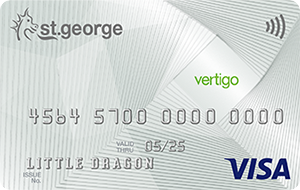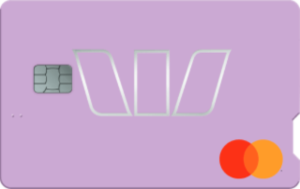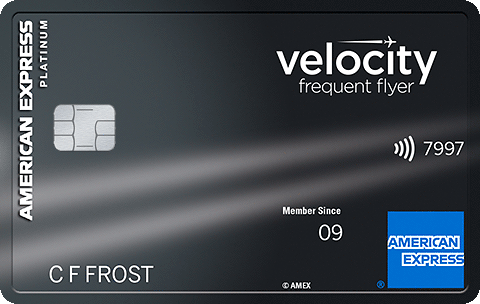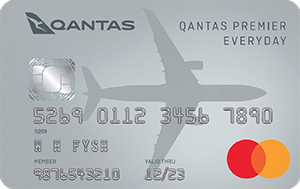
Hi, I’m a personal finance expert who loves to help you out! I’ll answer your question within a business day. Pinky swear.

With EOFY almost upon us, it’s time to start thinking about gathering together everything we need to lodge our tax returns. So, where to start? The info you will need to provide will obviously depend on your circumstances, and whether you’re lodging a return as a business or an individual. Either way though, you will need to think about expenses you can claim.
Being the entirely organised person you are, you’ve kept a record of all the expenses you will need to claim at the end of this tax year. Right? Maybe not. We get it, and we can help.
In this post, we’re going to break down what you can and can’t claim, and how you can use your credit card statements – among other tools – to track your expenses. From there, we’ll go into the pros and cons of using a credit card to pay your taxes, to then look at the potential for paying down your credit card balance using your tax return.

Understanding What You Can Claim
So, what expenses can you claim? This will depend entirely on your situation. However, if you are claiming as a business, the ATO provides the following as a guideline.
Business Expense Claims
Let’s start with general operating expenses, in other words, the expenses you incur in the everyday running of your business. You can claim most of these expenses in the same income year you incur them, however, the ATO recommends you keep accurate and complete records of these expenses as they occur. In addition, you can only claim the business portion of these expenses if they relate to both business and private use.
Common examples of general operating expenses in business include:
The ATO also outlines other expenses you can claim as a business, which are similar to those claimed by employees. These include:
You may also claim certain operating expenses associated with employing people, such as:
In terms of claims on business premises operating expenses, these may include:
What about tax-related operating expenses? These may also be claimable, and can include:
|

Individual Expense Claims
And if you are claiming as an individual? The ATO also offers a guide on this, which outlines what you may and may not claim on. While there are very strict rules around this, the ATO says you’re entitled to claim deductions for some expenses, most of which must be directly related to earning your income.
In terms of work-related expenses, to claim a work-related deduction:
Work-related expense claims may include:
The ATO notes you may also be able to claim a deduction for:
Points worth noting here include:
|

Working Out Your Expenses
Now you know what you can claim, it’s time to work out what expenses you have incurred over the past tax year that you can include within your tax return.
As a business, you may be using accounting software that allows you to add expenses and receipts day by day. Using this type of software can seriously reduce the time it takes to lodge your tax return each year, allowing you to quickly and easily export all relevant information so that either you or your accountant can deal with it.
If you are a sole trader, or you are claiming as an individual, using accounting software may not be an option. If that’s the case, and you have not kept a record of your claimable expenses, you will need to review your year’s expenses manually. Here’s where your credit card statements – and bank statements – come into their own.
Using online banking or your bank’s app, you can search through your spending, either week by week, or by searching for certain keywords or amounts. If you’re not sure what to look for – or your expense claims are different to last tax year thanks to COVID-related changes at work – check out the following sections or visit the ATO’s website.

The ATO Issues A Warning
For all you keen beans out there who want to lodge your tax returns as soon as the new tax year ticks over in July, the ATO suggests that you wait until at least the end of the month. In an ABC news article, the ATO advised people to wait until the end of July to make sure they have all the information they need to lodge their returns, and to avoid making any mistakes.
The ATO also highlighted a number of items it will monitor closely this year, as it looks out for both businesses and individuals attempting to overclaim within these categories. Claims under the microscope will include unsubstantiated, or higher-than-expected, work-related expense tax deductions and claims on rental properties, according to assistant commissioner Karen Foat.
According to official data, there were almost 9 million taxpayers claiming a total of $21.7 billion in work-related expenses in the 2017-18 financial year, with claims relating to cars, travel, clothing, mobile phone and internet use, and self-education expenses. This year, the ATO expects that figure to rise as a result of more people working from home.
An issue that may arise from this is the fact that many people may not know what they are and aren’t allowed to claim for in their new work-from-home role.
“People think if they work from home most of the time and need to go to office occasionally, they can claim the home to work trip,” Ms Foat said. “In fact, your home is still your private residence and so you can’t claim home to work travel.”
There have also been questions about whether it’s possible to claim for children’s education expenses, as well as items that would be typically supplied within the office workplace, such as tea, coffee and toilet paper. The short answer there is no.
Watching out for over-claiming will be high on the agenda for the ATO this year, particularly if claims in one area go up but are not logically offset in another. “For example, if we see a big work-from-home claim and the laundry claim looks the same, the question we will ask is, ‘if you’re working from home are you really wearing your uniform?’,” Ms Foat said.
And of course, work-related travel is another area of focus. “Almost everyone’s work-related travel has gone down – we are doing things a lot more virtually these days,” Ms Foat said. “If your claims look really high compared to other people in the same income level and same occupation, and perhaps even in the same location, we might start to ask questions about that.”
The solution? Know what you can claim for – and keep records and receipts. While you may not need to provide receipts for certain work-related expense claims under $300, you still need to be able to detail what each expense was for and how much it cost. As for records, tax law requires most records to be kept for five years, which include:
- Sales receipts
- Expense invoices
- Credit card statements
- Bank statements
- Employee records (wages, super, tax declarations, contracts)
- Vehicle records
- Lists of debtors and creditors
- Asset purchases
TIP: Business Spending vs. Personal SpendingFinding it hard to separate your business and personal spending come tax time? Applying for a business credit card could be worth looking into. Options range from basic, low cost cards to premium feature-packed rewards earners, so there’s something to suit all needs. Business credit cards can also come with handy business tools, including integration with accounting software. You can find out what’s what as you compare business credit cards right here on CreditCard.com.au. |

Paying Your Taxes Using a Credit Card
So, you’ve lodged your tax return. Now it’s time to pay your dues. The question is, should you use your credit card to pay your taxes? While there are benefits of using a credit card to pay your tax bill, there are downsides too. To help you make the right decision, here are the potential pros and cons you should be aware of.
Potential Benefits
You could ease your cash flow. When you pay with credit card, you will have a certain number of days before your statement is due and the balance needs to be paid. As these are typically ‘interest free’ days, you can pay your tax bill now, then pay it off later while paying nothing in interest. And, if you don’t have the cash to cover the tax bill now – but you know you will by the card’s statement due date – your card can help you cover the cost, to help you avoid interest and late fees charged by the ATO.
You could earn interest by paying early. If you pay your tax payment more than 14 days before the due date, the ATO will pay you interest, which you can claim back as a credit on your tax return. You can find out more about this on the ATO website.
You could earn rewards. When you use a rewards card to pay your tax bill, you could earn rewards points on that payment. While there are factors to consider – such as credit card surcharges and reduced earn rates on ATO payments – if you have the right rewards card, this could give you a nice chunk of points that you could use within your business or your personal life.
You could build your credit. When you use your credit card and clear your balance in full and on time, this helps build your credit score while establishing a healthy credit report. By using your credit card to pay your tax payment – and then paying off your balance by the statement due date – this could go a long way towards improving your credit rating.
You could claim your credit card fees. While the ATO charges a surcharge on credit card payments, you may be able to claim these fees back as a tax deduction. In some circumstances, it may also be possible to claim your credit card annual fee as a tax deduction, but you would need to check with your accountant or the ATO to see if you are eligible.
Potential Downsides
Your rewards earn may be outweighed by fees. Many rewards cards offer a lower earn rate on payments to the ATO, while some offer no points at all. If your card has a lower earn rate on ATO transactions, you may not find much value in the points you earn when weighed against the fees you pay for using your credit card.
The ATO charges the following card payment fees:
ExampleJohn pays his $10,000 tax payment with his American Express card. He earns 1 Qantas Point per dollar on this type of transaction, which gives him 10,000 Qantas Points. He pays a credit card surcharge of $145. Are 10,000 Qantas Points worth $145? It depends on how you use them. As an example of value, you could fly from Brisbane to Mumbai in economy for 51,200 Qantas Points, or upgrade from economy to business flying from Perth to London for 54,500 Qantas Points. It is worth noting however, as we mentioned earlier, these fees could be tax-deductible. If you are eligible to claim the fees you pay as a result of paying by credit card, it makes the points you earn much more valuable. |
You will pay interest if you don’t clear your balance on time. While credit cards can help you cover costs when needed, you do have to be in the position to pay those costs back later. If you don’t clear your balance after paying your tax payment, the interest costs will mount up – quickly outweighing any points you earned on the transaction. This interest is not tax-deductible.
You may not be eligible for ‘interest free’ days. Some cards offering interest free days may specify ATO transactions are ineligible for this feature. That means if you were to use your credit card to pay your tax bill, you would pay interest from the day the transaction is made. Before you use your card to pay, check with your card provider to see if this affects you.

Making It Work
Want to use your credit card to cover your tax payment? Here’s how to make it work for you.
First up, choose the right card. You will need to choose a card that offers interest free days on ATO payments. If you want to earn rewards, make sure the earn rate on ATO spending offers value. Also think about your credit limit. You will need to have a credit limit with enough wiggle room to cover your tax payments.
If you opt for a rewards card, do your sums before you apply. Find out how many points you will earn on your tax payments, then work out the value of those points when you redeem them. It might be a while before you can redeem them for high-value travel rewards, so keep that in mind. Also check whether the credit card surcharge you will pay is tax-deductible in your circumstances.
You could also check out third party payment providers. These providers act as a payment channel, allowing you to use your card to pay your tax payment while earning your standard earn rate (instead of a lowered ATO earn rate). Again, do your sums to work out if the fee the provider charges for this service is more or less than the value of the points you earn.
Using Your Tax Refund To Pay Down Your Credit Card
On the flip side, what happens if you’ve overpaid on your taxes throughout the year and you now get a tax refund? Before you shout spending spree, it could be worth looking at how that money could be better used. Like paying down your credit card balance, for example.
If you have a credit card balance that’s in need of paying down, but you need a push to put that tax refund to work – here are four good reasons that could sway you.

Save Big On Interest
On the lower end, credit cards charge upwards of 10% p.a., while on the higher end, interest can reach 23% or even 24% p.a. If you carry a balance on your card, whether that’s on a low rate or high rate card, the interest you pay will quickly stack up.
Let’s say you have a card with a purchase rate of 20% p.a. If you carry a balance of $8,000, only making the minimum payments each month, you will end up paying back $40,982 over a period of 56 years. That’s $32,982 in interest on a $8,000 debt.
While making higher repayments of $400 each month would see you paying out $1,612 in interest and clearing the debt within two years, imagine how much you could save in interest simply by paying off – or paying down – that balance with your tax refund?
Improve Your Credit
While there are many factors that go into establishing your credit score, you could work on improving your credit by paying down your credit card balance to zero. Clearing your balance on time each month helps to build your credit. Not only that, when you apply for credit in the future, that unpaid credit card debt will no longer be an issue.
Build Momentum To Become Debt-Free
If you’ve got a few credit cards to pay off, it can be difficult knowing where to start. However, if you use your tax refund to clear just one balance, that could give you the boost you need to start working on paying down the others. While the process will still be hard work, that first payment could give you the momentum you need to become debt-free.
Work On Other Financial Goals
With your credit card paid off, you can concentrate on other financial goals. You could start putting money towards a rainy day fund, or you could start building a deposit for a house. Ready to start investing? You could make that happen too now your credit card balance is at zero. Unsure what you want to do with your money? A little financial guidance can go a long way, so consider seeking the advice of a professional financial adviser to get you started.
Disclaimer: The information contained within this post is general in nature and does not take into account your personal situation. You should consider whether the information is appropriate to your needs, and where appropriate, seek professional advice from a financial adviser.
Photo source: Pexels

Pauline Hatch
Pauline is a personal finance expert at CreditCard.com.au, with 9 years in money, budgeting and property reporting under her belt. Pauline is passionate about seeing Aussies win by making their money – and their credit cards – work smarter, harder and bigger.
You might be interested in

Credit Card Types
Credit Card Fraud Statistics

Tips & Guides
Complete Guide to the Velocity Frequent Flyer Program
Recently Asked Questions
Something you need to know about this card? Ask our credit card expert a question.
Ask a question
Hi, I’m a personal finance expert who loves to help you out! I’ll answer your question within a business day. Pinky swear.












